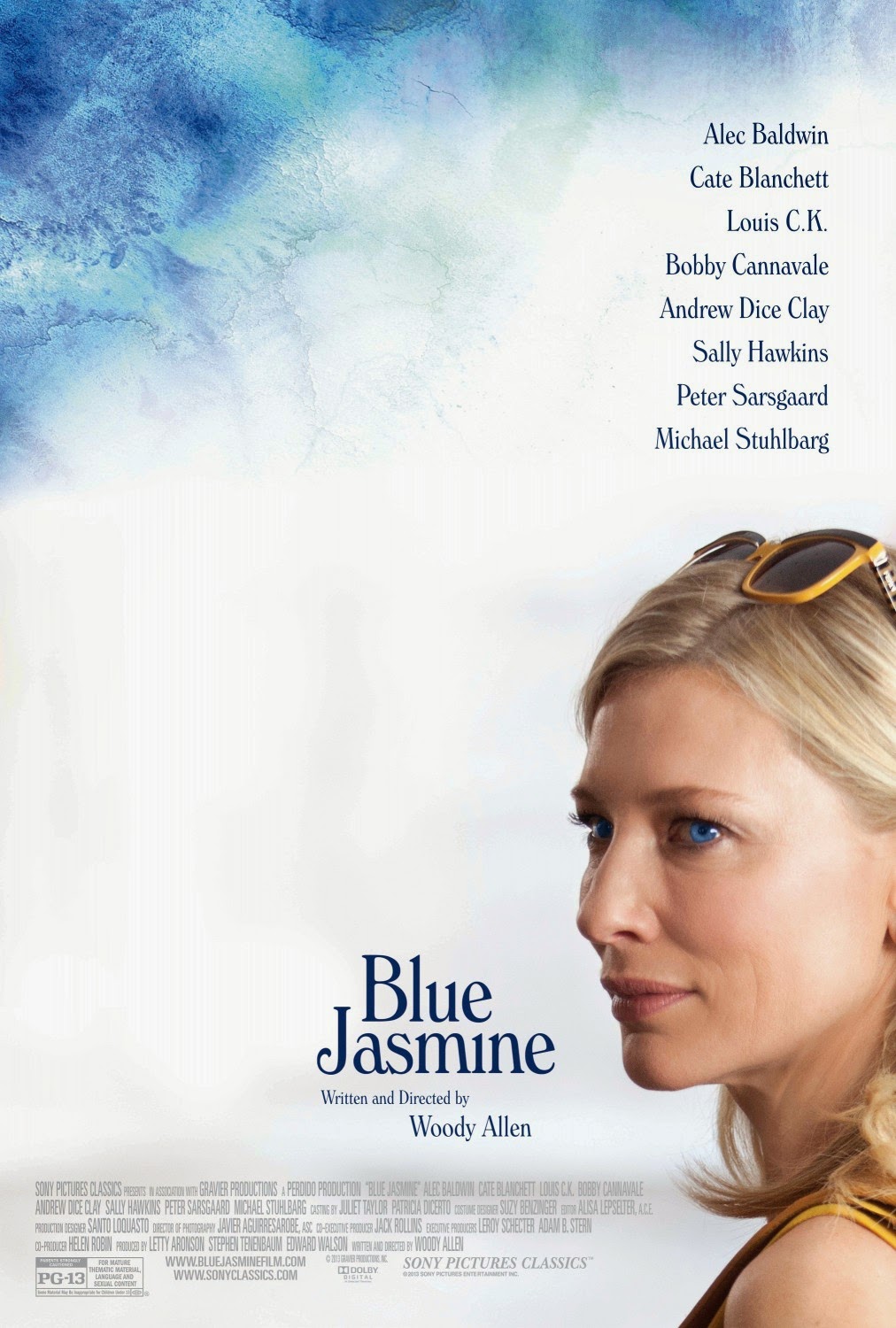Blue Jasmine (2013) Directed By Woody Allen
Nick:
The vitriol towards Woody Allen leading up to this year's Oscars ceremony was everywhere. Mia Farrow and various siblings dug in, child abuse allegations resurfaced, everyone had an opinion (even if they didn't really know the intimacies of the case). Vanity Fair and to a lesser degree Slate waged an ugly war against Mr Allen, whilst The New York Times got behind the film maker. Someone on Facebook revealed to me that although they hadn't been following the case, Allen must be a child molester because of his relationship with the much younger Soon-Yi Previn (his wife), who is Farrow's adopted daughter. It takes that much – an age difference – and questionable choices to be guilty in the public's eyes. There's nothing worse to accuse someone of than being a child abuser. It's stayed with Allen and it always will. I like Allen's films, does that make me a sympathiser with what he's alleged to have done? No. It's a tragedy for all involved that much I know. Funnily enough, since the Oscars and Blue Jasmine's failure to win anything for Allen personally (although he was nominated for a 24th time for best original screenplay), all the mudslinging has stopped. Coincidence or calculation? As far as the Farrows are concerned, this was a small victory (if anyone wins this kind of shit). Watching Blue Jasmine made me think that perhaps Farrow had other reasons to discredit Allen again.
 |
| Cate Blanchett as Jasmine |
 |
| Husbands & Wives |
Astrid:
Let me just jump past the whole shit storm that relates to Blue Jasmine and get right into the movie.
If you have been reading this blog at all, you’ll know that Allen is very much appreciated here and his movies have an important role in my cultural construction. (Just look up my love letter to Woody here, or our Midnight In Paris review if you want to read more) In the recent years, I have grown a little tired of Woody Allen’s mannerisms – those that reoccur in the works from the past 15 years or so. I would be prone to criticism over movies like To Rome With Love or Midnight In Paris and therefore when I heard that Blue Jasmine is considered very different for Woody, I could not wait to see it for myself despite the tiredness.
Unfortunately, Blue Jasmine disappointed me. Why is it that the general critical view and mine do not seem to agree on Allen at all? From the very beginning I could not shake the words STREETCAR NAMED DESIRE out of my head. Is this a remake? A homage at least? Have I missed the news that Woody decided to make a film out of the play instead of a new original script? Of Course, Woody is nodding and playing with Blanche Dubois with his Jasmine, but why so obviously? Where is the originality in this movie? As we were forced to view Blue Jasmine in short sections, I kept hoping that it would get better the next day. But ‘the something more’ of a promising beginning never materialised and my disappointment deepened to the level on uninterested (same happened with me and Midnight in Paris).
The worst thing is that Cate Blanchett and Sally Hawkins are lovely actors and they do great work here. Somehow though, they are cast in a play of preconceptions and stereotypes so stuck in some previous century and viewpoint that no amount of good character interpretation won’t save the whole.
Jasmine is a mentally ill woman, but she is also a calculating Upper Eastside wife, who chooses dishonesty as long as she can hold on to her precious jewels. My empathy for her is scant, while the backstory fails to show us any other reason to love her. The portrayal of Ginger is verging on offensive. Not because of the way Hawkins plays the part, but because I can imagine how the little Upper East sider himself came up with the part. Sometimes black and white is too simplistic, even for the sake of the drama. I would rather watch Vivien Leigh reciting Tennessee Williams – that’s the problem.













Comments
Post a Comment